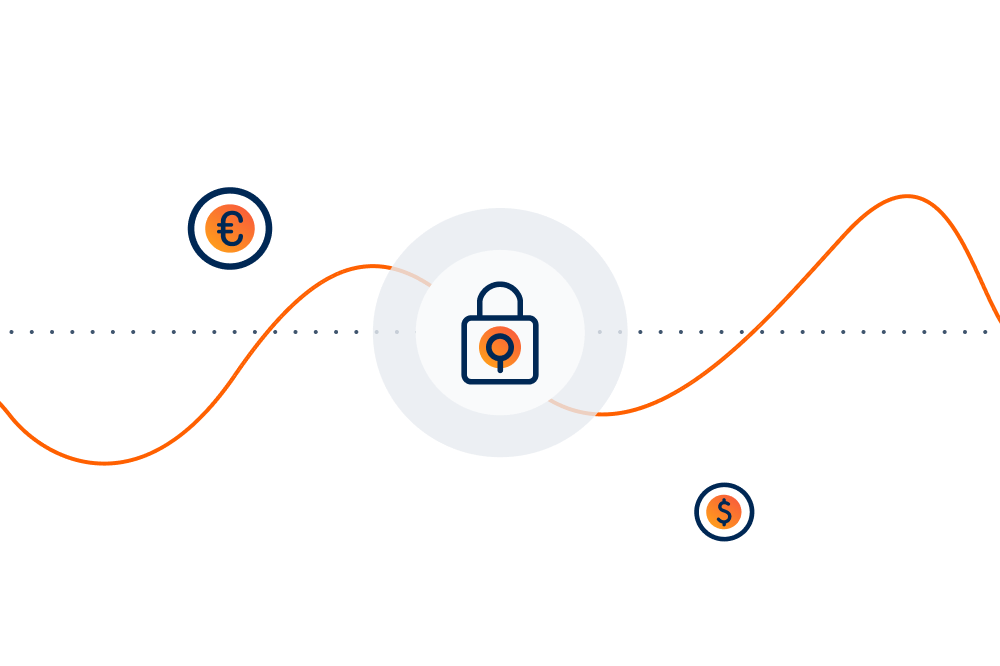Protect your business against forex risk with our tools and specialised support
Every foreign currency transfer carries forex risk. Protect yourself with a risk management strategy. Our OFXperts can help you to create a tailored strategy for your business.

A forex risk management strategy can help you…
- Achieve more certainty over foreign exchange costs by using a simple hedging approach
- Access fast, flexible transfers to make the most of currency fluctuations
- Plan for market uncertainty so your cash flows are more predictable and profitable

What is foreign exchange risk?
Sometimes called currency risk or forex risk, it refers to the losses you could incur when making an international financial transaction, due to currency fluctuations.
Having a FX risk management plan helps your business keep profits predictable by hedging against currency fluctuations.
Why understanding foreign exchange risk management is important
Currency fluctuations are not always a bad thing.
If you understand forex risk and how to manage it, you can try to anticipate and plan for opportunities to make FX gains and boost your profits.


OFX helps our client Hark Enterprises to reduce their foreign exchange risk
See how we helped this Aussie wholesaler and distributor to manage forex risk and use currency fluctuations to their benefit.
Could your business absorb a sudden £2.5 million loss?
“…In 2022, the pound fluctuated by nearly 25% against the US dollar…If you’re a business buying £10 million pounds worth of USD, you could stand to lose £2.5 million pounds.”
OFXpert, Harry Narenthira, explains why a currency risk management plan can help your business.

How can you manage FX risk?
The most common way is with a simple hedging strategy.
Hedging is when you protect yourself against fluctuating exchange rates.
Forward Contracts makes hedging easier. They let you lock in great rates now, to use at a later date, so you can save money or even turn a profit.
Ready to make a transfer? Create your free account now.
Why Choose OFX for your currency risk management needs?
Talk to an OFXpert today
A dedicated OFXpert will work with you to understand your objectives and currency risk profile.
Our experienced team can help you build a tailored plan to mitigate the impact of fluctuating rates on your business while potentially locking in FX gains.



